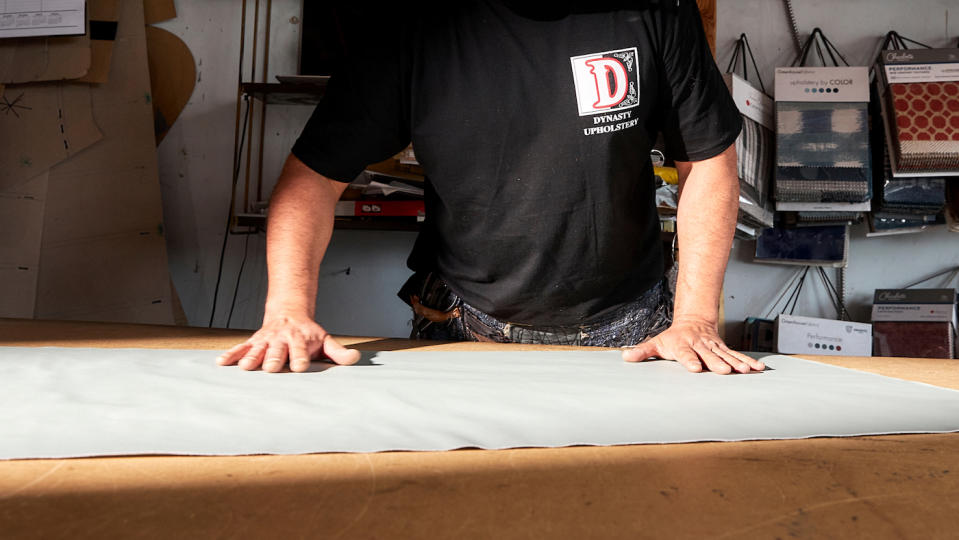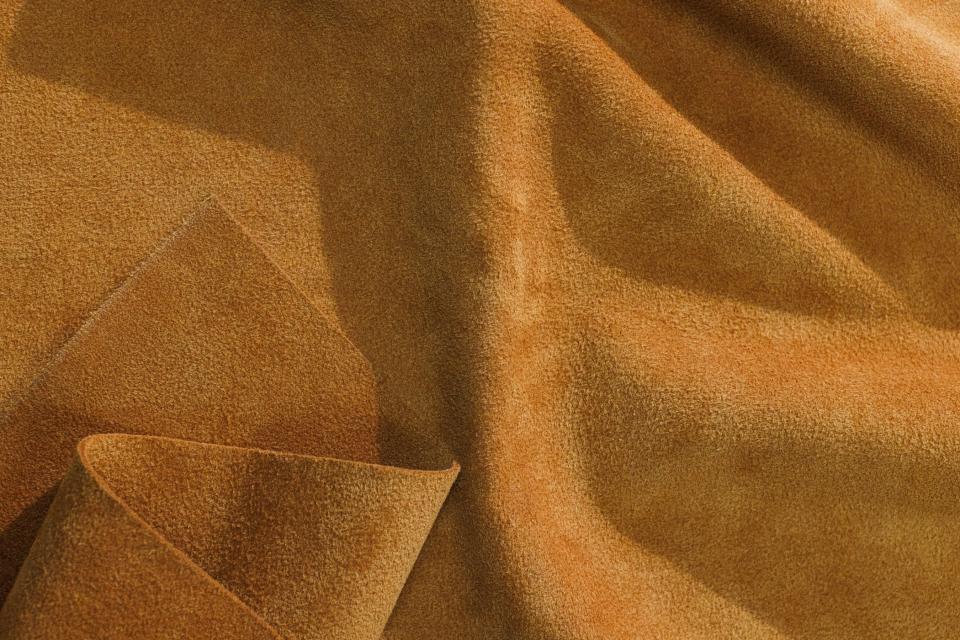Material World: This Alt Leather is Bananas

Material World is a weekly roundup of innovations and ideas within the materials sector, covering news from emerging biomaterials and alternative leathers to sustainable substitutes and future-proof fibers.
Von Holzhausen

“Someone’s trash is someone else’s treasure” rings true for von Holzhausen, a California material innovation company that wants to revolutionize how the industry thinks about agricultural waste.
More from Sourcing Journal
Koio's New Vegan Footwear Label Doubles as an Innovation Lab
How Sorona Producer CovationBio Aims to Be Even More Sustainable
Known for its bamboo-based leather alternative used in a Tesla concept for the Petersen Museum in Los Angeles, the company officially unveiled its latest innovation, Replant Leather, a plastic-free and plant-based leather alternative made from agricultural waste. No petrochemicals or toxic gasses are used to produce the non-viscous fiber-based material.
The company focuses on “inputs being either recycled or plant-based, and Replant actually captures both of those goals and initiatives within the company,” said Vicki von Holzhausen, founder of the namesake company, adding that operating with a low carbon footprint is the firm’s “North Star.” “It’s kind of a culmination of a lot of our work and our beliefs.”
The raw material is sourced directly from Indian farming cooperatives where piles of plant waste cover the ground after harvesting. That waste would otherwise be burned, releasing CO2 into the air and toxins into the soil. Farmers collect and send the plant fibers to fiber suppliers who dispatch them to be spun into yarn via a non-viscous process. Mills knit the material and back it with pesticide-free organic cotton before scientists coat it with the company’s plant-based resin for durability.
“The way that we work is we have the boots on the ground partner that we work with for the waste materials. Today, it’s banana leaf waste; tomorrow, it might be another waste that’s close to our middle partners,” she said. “Basically we want to keep the supply chain carbon footprint very low. And we could use, let’s say corn husk leaves, whenever we can find those waste materials. So currently the cooperatives are building banana leaf fibers for us and if we get a big order, we might go to a different fiber source. It’s very flexible in the supply chain in order to meet the demand.”
Essentially, the agro waste Replant uses must be high quality, and available in large quantities. Replant’s inputs use zero land, water and energy, representing a milestone in von Holzhausen’s commitment to create new materials that are not only innovative but also have impactful sustainability advancements. Replant releases two times less carbon emissions, three times less energy use and 60 percent less water than cotton. The leather alternative comprises over 80 percent plant-based materials and is the company’s most sustainable creation yet.
“This material is far more performance oriented—I always talk about how animal leather is completely obsolete,” the founder said. “Like I don’t really understand why the fast fashion industry seems to be the one real stronghold; yeah, because people have the heritage aspect of fashion really in their minds, but when we start to really educate people and let them know about the benefits of moving toward lower carbon materials, we all benefit [from that].”
The fully customizable, highly tactile luxury material lends itself to several verticals, including fashion and furniture. For the launch, von Holzhausen created eight modern Earth-inspired colors with shades including Sumi, Bone and Beet, and recreated Afra & Tobia Scarpa’s iconic Soriana chair using the material. With a drapey yet subtle grain feel, the smooth matte material is stain-, stretch- and water-resistant, tipping the scales at one-third of animal-derived leather’s weight.
“The fashion industry doesn’t want limits, and we are built to really supply material that can express their aesthetics,” von Holzhausen said. “Just because it’s made out of very earthy substances doesn’t mean it needs to look earthy.”
Modern Meadow

Modern Meadow‘s Bio-Vera is billed as a sustainable, animal-free biomaterial that looks, feels and naturally ages like animal leather. The biotechnology company’s biomaterial is powered by the proprietary Modern Meadow Bio-Alloy technology application platform.
“By harnessing the power of biotechnology, Modern Meadow has developed a material system that exhibits the same qualities and characteristics as conventional leather without relying on animal inputs,” Catherine Roggero-Lovisi, CEO of Modern Meadow, said. “Modern Meadow Bio-Vera represents a groundbreaking advancement in sustainable materials. This non-woven material is engineered to surpass the strength of leather while delivering the authentic look, feel and wearability of traditional leather. With an extensive range of colors and finishing options, Bio-Vera redefines possibilities in both durability and aesthetics.”
Sustainable and solvent-free, Bio-Vera starts with a 100 percent renewable non-woven scaffold powered by Bio-Alloy that ensures high performance. The engineered material uses renewable, traceable inputs and requires no special preservation or storage conditions, readily available at scale with reduced manufacturing complexity and costs.
Modern Meadow said it’s committed to responsible sourcing. It “carefully selected” the biomaterials used in Bio-Vera from a combination of post-consumer waste and bio-renewable technologies. Modern Meadow’s Bio-Alloy is a proprietary mixture of plant-based protein and biopolymer. But the company said the specific sourcing details of the final and finished materials used in Bio-Vera will depend on partner requirements.
“Bio-Vera is designed to be a sustainable and animal-free alternative to leather,” the company said about whether the biomaterial utilizes plastic. “The different options will offer a scaffold of certified recycled feedstock from post-consumer waste or cellulosic material.” The company declined to provide additional details on input specifics and how it sources feedstock.
Modern Meadow has conducted internal and external testing on Bio-Vera to compare its strength and performance, among other factors, against that of animal leather. A life cycle assessment is also in the works.
“We are excited to reveal the potential of Modern Meadow Bio-Vera at SynBioBeta ’23,” David Williamson, chief science and technology officer at Modern Meadow, said. “This cutting-edge biomaterial demonstrates our commitment to driving real-world impact, and we believe it will empower industries to make sustainable choices without compromising quality or style.”

